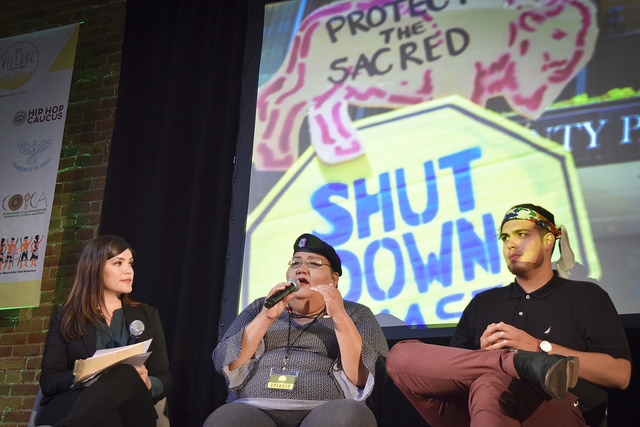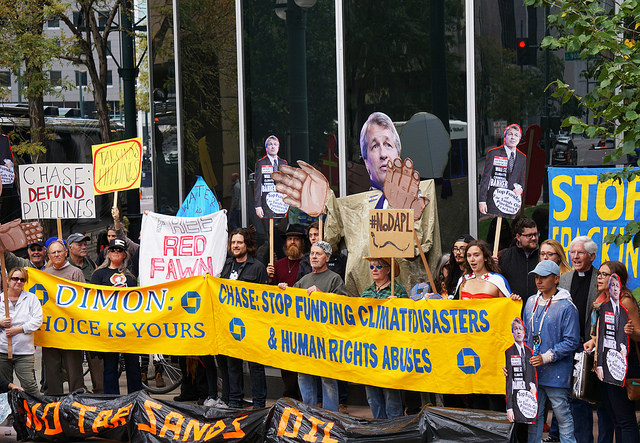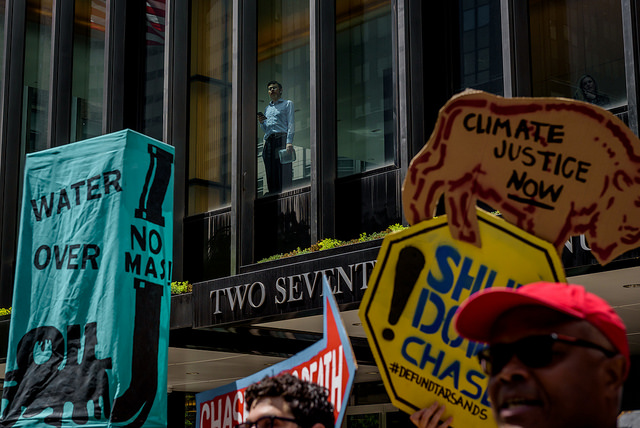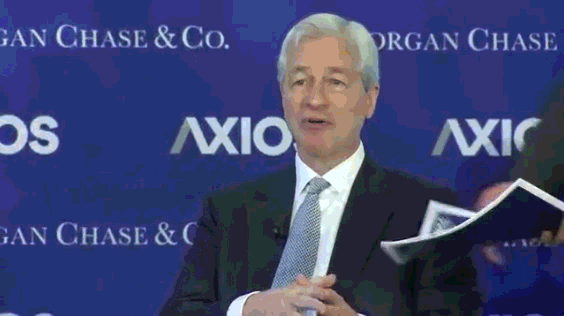UPDATE – January 2019:
Last month, two lines of credit to TransCanada subsidiaries were set to expire — totalling USD $1.5 billion, a quarter of TransCanada’s credit available for general corporate purposes.
These included a $1 billion loan to TransCanada Pipeline USA Ltd and a $500 million loan to Transcanada American Investment Ltd, both led by JPMorgan Chase, Bank of Montreal, and Mitsubishi UFJ Financial Group (MUFG). Other lenders included Bank of America, Barclays, Canadian Imperial Bank of Commerce (CIBC), Citigroup, Crédit Agricole, Credit Suisse, Deutsche Bank, Export Development Canada, HSBC, Mizuho Financial Group, National Bank of Canada, Royal Bank of Canada (RBC), Scotiabank, Sumitomo Mitsui Financial Group (SMFG), Toronto-Dominion Bank (TD), and Wells Fargo.
In the past, upon reaching their maturity dates, both of these lines of credit have been extended. This year, however they were not. Instead, they were replaced by two new loans to TransCanada, totalling $5.5 billion — making for a two thirds increase in TransCanada’s total available credit.
These two new loans are led by JPMorgan Chase and Bank of Montreal. Other participants include CIBC, Citi, Deutsche Bank, HSBC, MUFG, RBC, Scotiabank, SMFG, and TD, though the full lender list is not disclosed.
*Data source: Bloomberg Finance L.P.
Transcanada’s proposed 1,700 mile Keystone XL pipeline is on shaky ground once again.
The project, which still needs two key ingredients –– permits and money –– was delivered a major blow last month when a federal judge rescinded the Presidential Permit for KXL, in a lawsuit filed by Indigenous Environmental Network.
“President Trump’s permit was utterly illegal and against the proper procedure,” said Joye Braun, Cheyenne River Sioux Nation member and Frontline Community Organizer at Indigenous Environmental Network, in a statement. “For our people, it has always been a matter of no: No Consent, No Pipeline. We will continue to fight for our sovereignty as nations, our cultural and historic sites, for the safety of our people from man camps and for the sacred medicine that is the water. We will fight and we will win.”

While the ruling was a welcome victory, we anticipate TransCanada will be doing everything in its power to secure the necessary permits and capital to build KXL. Meanwhile, we remain vigilant alongside the growing movement of Native organizers, Tribal leadership, grassroots groups, and environmental organizations to use this time to organize. The bottomline is that TransCanada still doesn’t have its permits for Keystone, and if we stand in the way, it might not be able to secure the credit lines to finance it.
Projects like Keystone XL require billions of dollars to be built, and one key leverage point we have right now is TransCanada’s cash flow. The target: JPMorgan Chase.
FOLLOWING THE MONEY
JPMorgan Chase is the lead agent for two renewals for $1 B for TransCanada Pipelines USA Ltd. and $500 M for TransCanada American Investment Ltd. This December 14, TransCanada’s credit line is set for renewal.

Photo Credit: Jake Conroy, Rainforest Action Network
JPMorgan Chase is continually the lead bank on TransCanada’s credit renewals, loaning out billions to the dirty tar sands pipeline company and profiting off Indigenous rights violations and environmental disasters.
A “credit renewal,” as it’s called, is essentially a credit card with a new line of credit for a company. How JPMorgan Chase acts on TransCanada’s credit renewal will be a litmus test for how the bank is taking action on climate and Indigenous rights.
According to the Equator Principles, banks like JPMorgan Chase are NOT to finance projects that violate Indigenous rights of Free, Prior, and Informed Consent (FPIC). Meanwhile, the Cheyenne River and Yankton Sioux Tribes do not consent to the Keystone XL pipeline going through their lands, and are challenging the Public Utilities Commission. The Rosebud Sioux Tribe and Fort Belknap Indian Community of Montana are suing the Trump administration, contending that there was no effort to study the impacts KXL would have on their community’s watershed and sacred sites. Additionally, the Yankton Sioux Tribe is also challenging TransCanada on it’s lack of consultation and cultural surveys. This means that if JPMorgan Chase is to renew it’s financing of TransCanada right now, which means financing of Keystone XL, then the bank is out of compliance with the Equator Principles it claims to follow. Where is the accountability?

A JPMorgan Chase employee peers outside the Chase HQ to see activists protesting Chase’s financing of dirty fossil fuels and Indigenous rights violations.
And given the major impacts that a mega-infrastructure project like Keystone XL would have on the climate, it’s flatly unethical for any bank to renew credit with TransCanada.
The timing for this credit renewal comes at the heels of the urgent warning contained in the IPCC’s recent report that we must phase-out of fossil fuels to salvage a livable planet for our future and the generations to come. TransCanada’s Keystone XL pipeline, if built, would would transport up to 830,000 barrels of oil every day from Canada’s tar sands — one of the dirtiest energy sources in the world — to refineries in Texas. From a climate perspective, none of us can afford Keystone XL if we believe in a healthy future on a livable planet.

This is why we’ve been working with communities around the country to organize a blitz of action this week. Together we will hold Chase accountable.
This week, stay tuned for actions popping off in NYC, Seattle and San Francisco. And join thousands of others in holding Chase accountable by visiting ran.org/defundtarsands.
